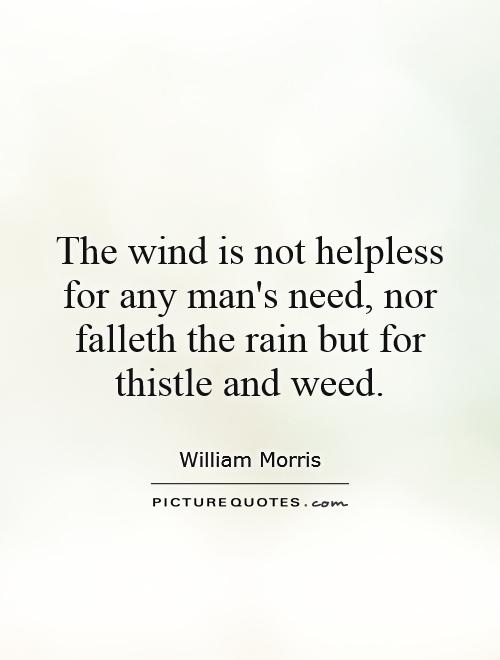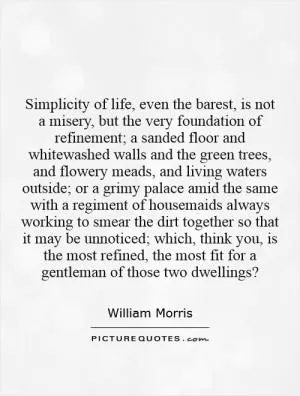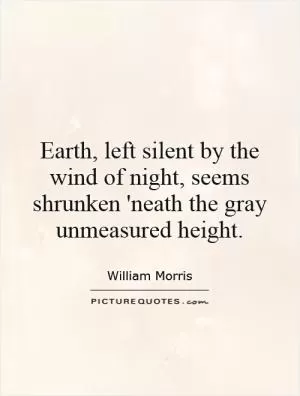The wind is not helpless for any man's need, nor falleth the rain but for thistle and weed

The wind is not helpless for any man's need, nor falleth the rain but for thistle and weed
William Morris, a prominent figure in the Arts and Crafts movement of the late 19th century, was known for his advocacy of traditional craftsmanship and his belief in the importance of nature in art and design. His work often reflected his deep connection to the natural world and his concern for the impact of industrialization on the environment.One of Morris's most famous quotes is, "The wind is not helpless for any man's need, nor falleth the rain but for thistle and weed." This quote speaks to Morris's belief in the inherent power and purpose of nature. He saw the wind and rain as forces of nature that were beyond human control, and that served a greater purpose in the natural world.
For Morris, the wind and rain were not simply random occurrences, but rather essential elements of the natural world that played a vital role in sustaining life. The wind carried seeds and pollen, helping to spread plant life and ensure the continuation of ecosystems. The rain provided essential moisture for plants to grow and thrive, supporting the delicate balance of the natural world.












 Friendship Quotes
Friendship Quotes Love Quotes
Love Quotes Life Quotes
Life Quotes Funny Quotes
Funny Quotes Motivational Quotes
Motivational Quotes Inspirational Quotes
Inspirational Quotes